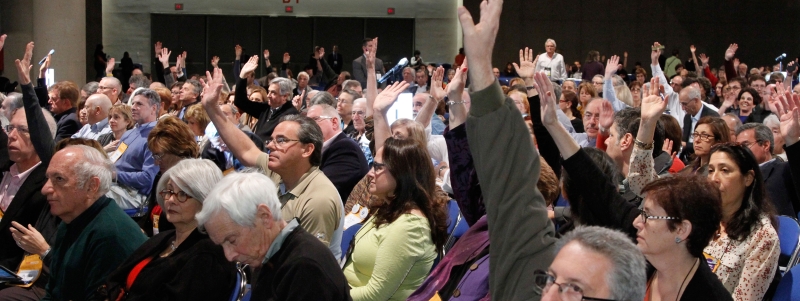Background
The Union of American Hebrew Congregations has a long history of supporting efforts to bring Ethiopian Jews to Israel. This dream became reality with the airlifts of Operation Moses in 1984 and Operation Solomon in 1991. We hailed those rescues as a manifestation of the highest values of Zionism and looked forward to a truly color-blind Israeli society.
While extraordinary achievements have been made in absorbing Ethiopian Jews, particularly in the area of jobs and housing, a number of policies, none ill-intended, have resulted in inadequate educational opportunities for many Ethiopian Jewish children generally and has particularly limited access to a university education. If left unchecked, these policies could lock the Ethiopian immigrants in a cycle of despair and poverty that would likely lead to the creation of a black underclass in Israel.
The UAHC Reform Jewish Ethiopian Assistance Project (Project REAP) and the Israel Religious Action Center (IRAC) have been actively involved in fu rthering the absorption process and seeking solutions to these problems.
Currently, there are approximately 56,000 Ethiopian immigrants in Israel, of whom more than half are under the age of 18. Ethiopian children are c oncentrated in weak schools characterized by weak teaching staffs and high percentages of disadvantaged students. Because of costs, many Ethiopian preschoolers are not enrolled in preschool programs and enter school at a disadvantage. Teenagers are often uprooted from their homes and sent to Youth Aliyah boarding schools populated by some of the most problematic youth in Israel. Most Ethiopian teenagers are placed in vocational tracks, and only seven percent of Ethiopian 12th graders receive matriculation certificates, in contrast to the national average of 40 percent. The school dropout rate for Ethiopian teenagers is high and increasing.
On August 18, 1996, Dr. Gadi Ben Ezer presented the Minister of Education, at his request, a plan for improvement of the educational conditions of Ethiopian immigrant children at every level. It would provide assistance to families to guarantee access to preschool education. It would establish after-school learning centers and all-day programs with trained teachers to strengthen basic skills and provide nutritional support for school children at all levels. It would increase opportunities for high school s tudents to earn matriculation certificates and would increase the integration of Ethiopian teenagers into community schools. It calls for increased investment in schools with high concentrations of Ethiopian children to raise the quality of education in those schools and to attract other children. Although the Minister of Education approved the plan in principle, only a fraction of the money needed to implement it has been budgeted.
THEREFORE, the Union of American Hebrew Congregations resolves to:
1. Commend and endorse the Ministry of Education's plan to improve ed ucational conditions of Ethiopian immigrant children;
2. Encourage the Government of Israel to implement its pledge to put into effect key portions of the plan as early as the current school year;
3. Call on the Government of Israel to compensate for predicted budgetary shortfalls in the mechanisms necessary to carry out all recommendations outlined in the plan;
4. Affirm the importance of utilizing Israel's best and brightest edu cators to ensure the appropriate means to carry out the plan in full; and
5. Call on Project REAP and IRAC to continue their work on behalf of Et hiopian Jewry.
Give to the URJ
The Union for Reform Judaism leads the largest and most diverse Jewish movement in North America.
